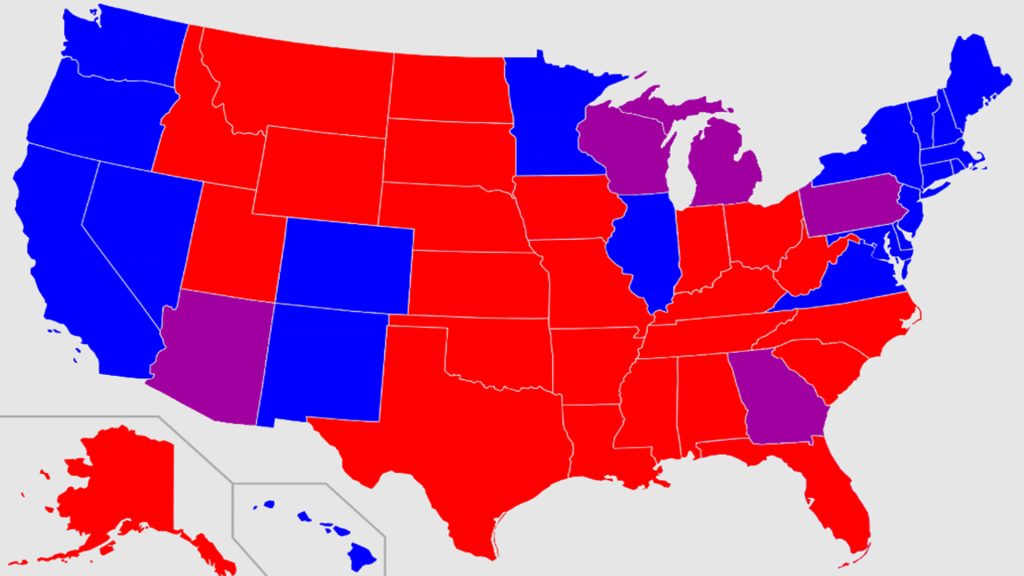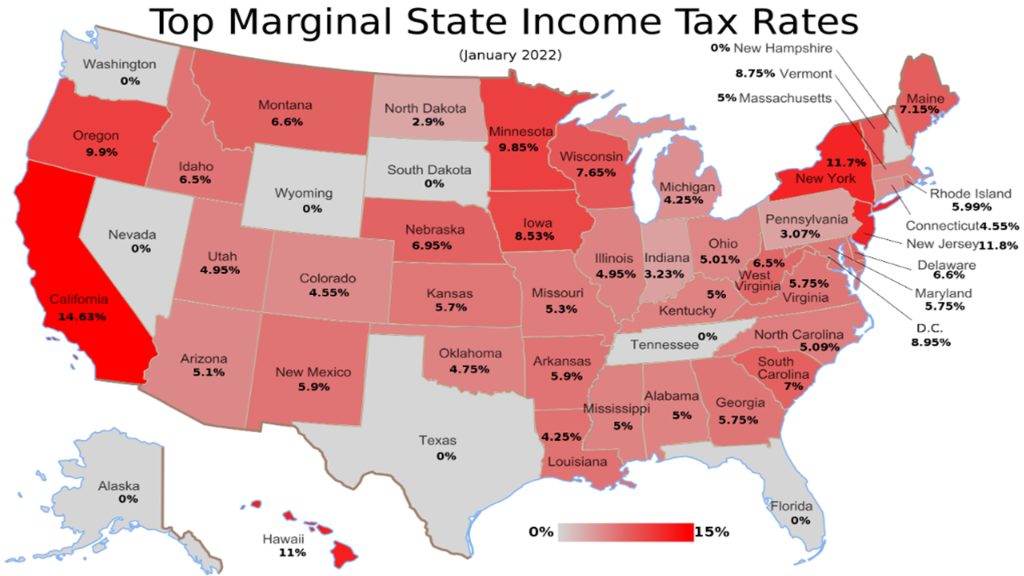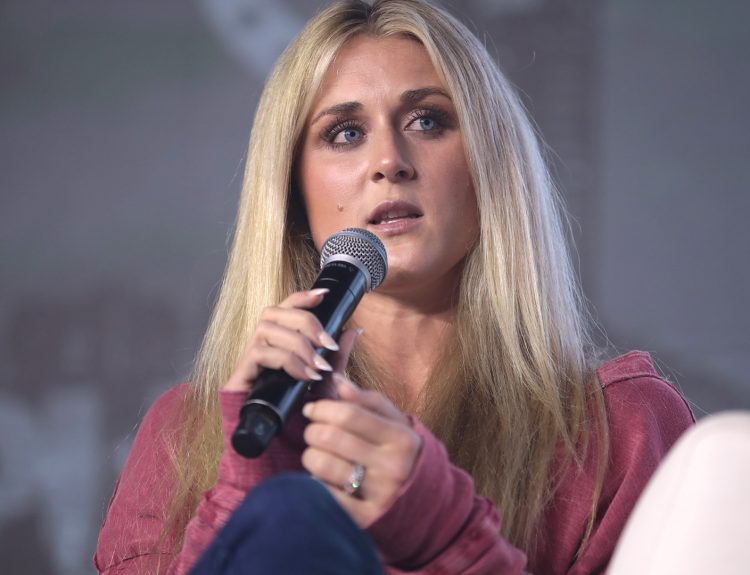Criticism of wokeness seems to be everywhere these days. It’s even being connected to economics on the state level, with some claiming that states that embrace social policies that are considered woke are the states that are losing money (and residents) the fastest. But is that really the case? Here’s what one billionaire had to say.
What Does It Mean To Be Woke?
Wokeness is defined as a propensity to be concerned about things like social injustice and equality. For a lot of us, that’s a good thing. But on the political right, wokeness has been turned into a pejorative term. It’s something that is often criticized. Some people are even claiming that wokeness is a financial liability. There’s more than one way to look at it.

There’s definitely some evidence that “woke” states spend more on public policies and social programs than states that are on the more conservative side of the spectrum. These non-woke states may have a lower tax base, too, since they don’t have as many programs to pay for. Does that translate to being broke, though? There are some who think that’s the case.
Who Is Chamath Palihapitiya?
Billionaire Chamath Palihapitiya is someone who’s known for being outspoken. He was once known as the SPAC King. (A SPAC is a Special Purpose Acquisition Company, an entity that’s used to walk management teams through the process of taking a company public.) He’s certainly made a lot of money, and that means he’s asked about financial issues.

Palihapitiya is now the Chief Executive Officer of Social Capital. He’s a Canadian-American venture capitalist. He worked for Facebook in its early days. He’s donated money to candidates on both sides of the political aisle, including Michael Bloomberg and most recently, Vivek Ramiswamy. Despite donations to Democratic candidates, he’s been speaking out against wokeness.
A Billionaire’s Take On Wokeness
In June of 2023, Palihapitiya used X, formerly known as Twitter, to weigh in on a Bloomberg article. The article claimed that for the first time in US history, six Southern states had contributed more to the United States’ GDP (Gross Domestic Product) than states in the Northeast. Those Northeastern states include Boston, New York, and Washington D.C.

Palihapitiya’s Tweet (or his X, we guess?) was short and sweet. He captioned the article with a pithy phrase. “Go woke, go broke.” It’s certainly catchy, but is it really accurate? It’s undeniable that some states are struggling more than others. And some states are losing residents, which can impact their revenue and their ability to pay for social programs.
Where Did Bloomberg and Chamath Palihapitiya Get Their Numbers?
Chamath Palihapitiya Tweeted in response to a Bloomberg article. Bloomberg is a financial publication owned and operated by fellow billionaire Michael Bloomberg, who previously ran for president and received donations from Palihapitiya. The numbers came from IRS data from 2020 and 2021, a period when the COVID-19 pandemic was at its peak. That may have impacted the numbers.

The IRS data that was cited was from the two years at the beginning of the pandemic. Many Americans were still in lockdown. As a result, many were engaged in remote work. Because they could work at home, office workers were leaving expensive cities-including some in the Northeast-to find more space and affordable living in other areas of the country.
What’s The Controversy Around Chamath Palihapitiya And Human Rights In China?
Before we get into what the numbers reveal about Chamath Palihapitiya’s statement, let’s look at the source. Palihapitiya isn’t an economist. He’s found himself in hot water before around statements he made about human rights violations in China. Palihapitiya is a minority investor in the Golden State Warriors and his comments led the team to make a statement.

What did Palihapitiya say? The quote in question started with, “Nobody cares about what’s happening to the Uyghurs, okay.” The Uyghurs are a minority Muslim population in China who are the victims of an ongoing genocide by China. He later walked back his statement, saying he does care about human rights violations as an “empathetic person.”
Woke State Population By The Numbers
Many comments on the political right have implied that blue states are bleeding residents like crazy. If that were the case, it would certainly be something that legislators and party leaders would need to take seriously. The numbers themselves are something of a mixed bag. While there’s undeniably been some migration, it might not be as bad as Palihapitiya implied.

The Census Bureau confirms that population trends show movement away from the Northeast, but it’s not as big a deal as “Go woke, go broke” implies. The Northeast lost about 43,330 residents in 2023. That’s a smaller number than the 403,000 lost in the previous two years. Meanwhile the South has added 706,226 people from domestic migration.
How Much Money Have Woke States Lost?
You might imagine that population decreases have also led to decreases in income. You’d be right about that. The Internal Revenue Service confirms Bloomberg’s speculations. How much is this Southern wealth migration and is it really due to woke policies like the ones that Palihapitiya criticizes? Let’s look at the actual numbers in both regions to answer that question.

Bloomberg’s analysis revealed that the Southern states of Florida, Georgia, Texas, North Carolina, South Carolina, and Tennessee added approximately $100 billion to their net income in 2020 and 2021. Meanwhile, the Washington, New York, and Boston corridor lost $60 billion of income in that same time. It’s not difficult to connect the two numbers given the South’s impressive growth.
Mark Cuban’s Counter-Argument
Mark Cuban is undeniably one of the best known billionaires in the United States. He’s famous for pushing back against fellow members of the so-called Billionaire’s Club, pointing out the fallacies in their arguments. He didn’t hold back after reading Palihapitiya’s Tweet about wokeness, asking him to provide facts to back up his controversial statements.

Cuban replied to Palihapitiya’s Tweet, saying, “Name me one woke company that has gone broke,” Cuban is a self-described independent. His company, Cost Plus Drug, might be considered woke. He took issue with Palihapitiya’s statement that wokeness was necessarily a financial downside for states. It’s a fair question. Palihapitiya made a sweeping statement that was unlikely to be universally true.
Startup Companies And Wokeness: Palihapitiya’s Response
Palihapitiya was quick to respond to Mark Cuban’s challenge. He replied with a list of companies, all startups that had gone out of business in recent years. He defended his response by saying that some of these companies were “likely to be woke.” Cuban pounced on him, saying, “A list of STARTUPS failing is weak and you know it Chamath.”

It’s likely that Palihapitiya’s statement about startups was true. But is that really a fair comparison? According to multiple sources, the failure rate for startups is somewhere between 80% and 90%. That’s a huge failure rate that has nothing to do with a startup’s politics or policies, so it can’t be used as a stand-alone defense of Palihapitiya’s assertion.
Warm Weather and Cheaper Housing
Bloomberg didn’t claim that wokeness was an issue, although the article certainly hinted at some issues that could be considered woke. One example is that Northern states tend to have higher taxes than those in the South. There are other benefits to moving South of the Mason-Dixon line, and those might be just as attractive to those who are relocating.

Bloomberg pointed out that people who move from the Northeast corridor to the South will experience “warmer weather, lower taxes, looser regulation and cheaper housing” in the South. Given how high housing prices are in the North, it’s possible that real estate might be reason enough for someone to make the move. Homeownership is a common goal, after all.
Where Culture and Finances Combine?
Palihapitiya expanded on his argument about wokeness. He believes that “woke” policies are a contributing factor. He also left a bit of room for opposition, asking if the migration was due to ideology or to other issues such as genetics and health that he might not be seeing. Those assertions would require a lot more research and documentation to prove.

It’s likely that taxes may have something to do with the ongoing North-to-South migration. After all, lower taxes mean that a family’s income can stretch more than it would in a state with high taxes. That’s just simple mathematics. Remote work has opened options for people who want to save money and might put the dream of homeownership in reach.
Where Does The Debate Go Next?
The debate over the United States’ ongoing domestic migration is likely to continue. With so much money at stake, economists, billionaires, and ordinary people all have a stake in figuring out what’s behind the shift. We’re all wondering what the future will bring.

Palihapitiya is far from the only person to weigh in on this issue. Economist and policy analyst Stephen Moore has also spoken out about the shift, particularly as it relates to business conditions in the less-regulated South. It may very well be that more big companies will move there, taking jobs (and people) with them.






